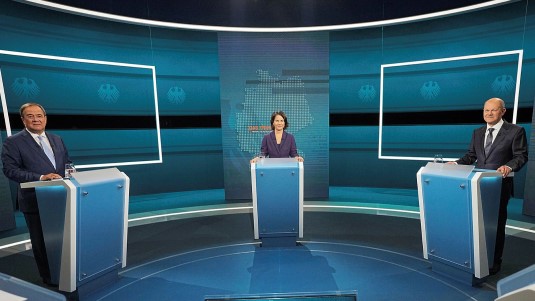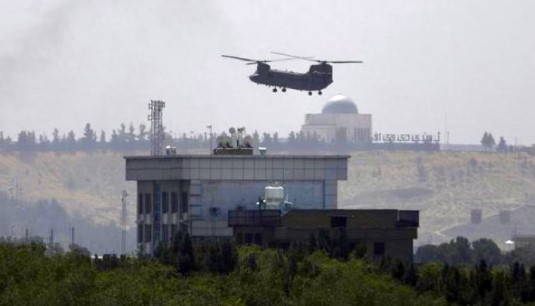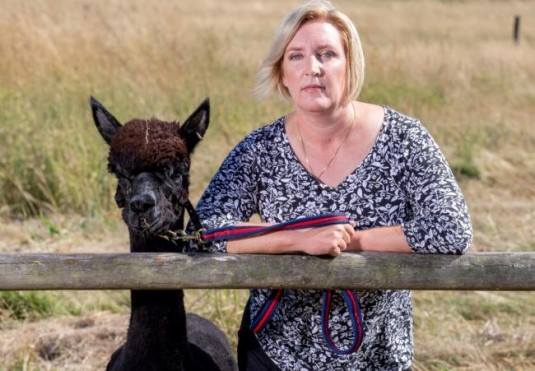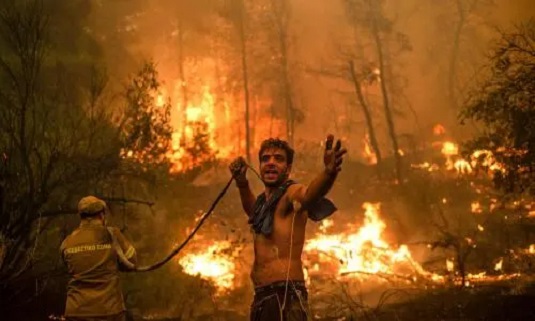
Pasokification, for those unfamiliar with the term, is associated with the collapse of the mainstay of the Greek centre left and describes the process how it went from 44% of the popular vote to 12.3% in 2012 to 4.5% in 2015. So enfeebled this once mighty party was that PASOK has since merged with a couple of small centre left parties, forming the Macron/Change UK-sounding Movement for Change and returning 22 parliamentarians on eight per cent of the vote in 2019. What occasioned this sudden collapse was the party's embrace of austerity measures as the chill wind of the 2008 crisis bit into the Greek economy. They found, to their cost, that forcing workers to pay for a crisis of capital isn't a good idea for centre left parties. Who could have forecast that attacking their core constituencies would entail negative political consequences? Few on Europe's official social democratic and labour parties cottoned on and similar results repeated in the Netherlands, Italy, and France. In other countries, centre left parties who allied themselves with the main ruling class party of the right suffered similar fates. Scottish Labour here was one of them, but a party lucky to experience both was the SPD.
Between 1998 and 2005, the SPD governed in coalition with the Greens. Winning 41% in the first and 38.5% in the second, the pair ruled at the point Third Way politics dominated the horizon of bourgeois politics. In 2005 the SPD vote slid again to 34%, virtually level pegging with Angela Merkel's CDU/CSU, and on this occasion opted to form a grand coalition - the first in 40 years - that oversaw cuts to social security and increases to VAT and the equivalent to National Insurance contributions. In 2009 the SPD's service was awarded with a collapse in its vote down to 23% and the return of just 146 seats, its worst result since the first federal elections in 1949. They were dumped out of office as the Union turned to their preferred coalition partners, the right-liberal Free Democratic Party (FDP). A four-year period of opposition was good for the social democratic constitution as the SPD went on to regain three percentage points worth of lost ground, and presaging what happened in the UK the FDP were completely wiped out, losing every single seat. This was good enough for a resumption of the grand coalition in 2013 and, unsurprisingly, history repeated itself yet again in 2017 when the SPD vote dipped below 10 million again and won them 21%. The rise of Alternative for Deutschland (AfD) helped spare the SPD's blushes by making sure the Christian Democrat vote was hit with a nine-point drop, but as the two main parties remained the most viable partners they renewed their coalition following an appeal from the German president.
What has changed since then? The SPD's ride through the polls since 2017 have been a bumpy one. Upon entering government again the numbers absolutely tanked, occasionally dipping into fourth place behind the Greens and AfD. They reported ratings worse than the vote the SPD received in the fake election of 1933 where the Nazis used the force of the state to attack the party, engaged in ballot stuffing, and getting their bully boys to watch voters as they made their choices. But since June the Union have suffered, with their figures posting well below the 25% floor established in 1949 while the SPD have dramatically recovered and are touching a quarter of the popular vote. How to explain?
The first is the debacle of this year's floods, in which 184 people died. The Union's candidate, Armin Laschat, is the party leader and state premier of North Rhine-Westphalia's state, a place hit particularly hard by flooding. While there are questions about his regional government's handling of the crisis, what has harmed his chances was him laughing and joking with local officials in the background of a broadcast given by the President mourning victims of the disaster. With nothing left in the tank, Laschet has gone for good old fashioned red baiting, claiming the SPD can't wait to jump into bed with Die Linke, Germany's slowly shrinking SPD left split/fusion with the East German PDS - the successor to the former communist party. The tumbling numbers suggest the traction it's getting is minimal. The Greens have also taken a bit of a dive over the summer after briefly leading several polls. Their candidate for chancellor, Annalena Baerbock, has become embroiled in a plagiarism row which has hurt her personal standing as a fresh faced alternative to the primary parties. And the SPD itself? Their candidate, Olaf Scholz, seems to be winning by simply keeping his nose clean. As finance minister and vice-chancellor to Merkel, if anything he better represents continuity and stability - the CDU/CSU's traditional strong suit - than the Christian Democrats themselves. For many Germans, mainly older Germans, he is a known quantity. As Jeremy Cliffe notes, during this weekend's three-way debate he merely plodded through the answers and is content to trade off the mantle of Merkel's heir - undoubtedly assisted by his sceptical views on public spending and reining in debt. Apart from a preference for a Eurozone-wide financial transaction tax, there's little to suggest he is much of a social democrat.
Therefore what we're seeing is the possibility of a strange ending to the Pasokification process. The Greens are by far and away the most popular party among the young, followed by a reinvented FDP fishing from similar waters. What is saving the SPD is a two pronged assault on the right. The AfD have long soaked up the populist constituencies who might otherwise be relied on to vote reluctantly for the Union, while the SPD are living the Blairite dream of occupying the proving grounds of conservative politics and are proving successful at ripping these supporters away from the CDU/CSU. In other words, in 23 years the SPD have lost its mass base, done its best to liquidate its traditional support among workers, made it very clear the rising generation of immaterial workers aren't welcome, and look like they're coming out the other side with a chip off the old bed rock of dyed-in-the-wool centre right Christian Democrats.
Given what is happening in Germany, we can imagine someone one these shores is watching events closely. With its determination to disperse its coalition inherited from the past two general elections, and temper any policies that might be regarded as radical, such as abolishing tuition fees and improving trade union rights with right wing positioning and unconvincing flag waving, the Labour leadership are seeing their fondest dreams playing out across the North Sea. This gives them the evidence they think they need to plug away as they are doing, downplaying expectations, giving no reason to hope, and merely offering a competent steady-as-she-goes approach to politics. A position that could well lead to the liquidation of Labour without the consolation of replacing its vote with disgruntled Tories.
Image Credit









